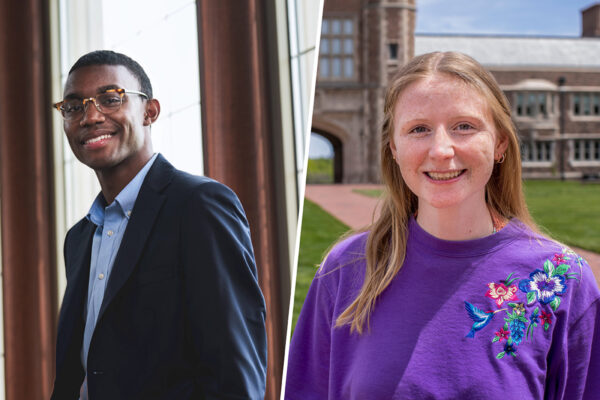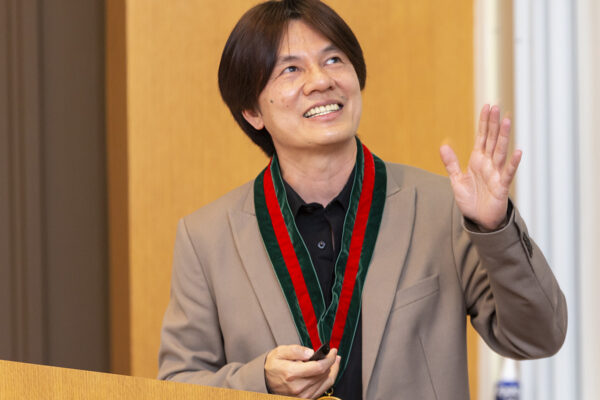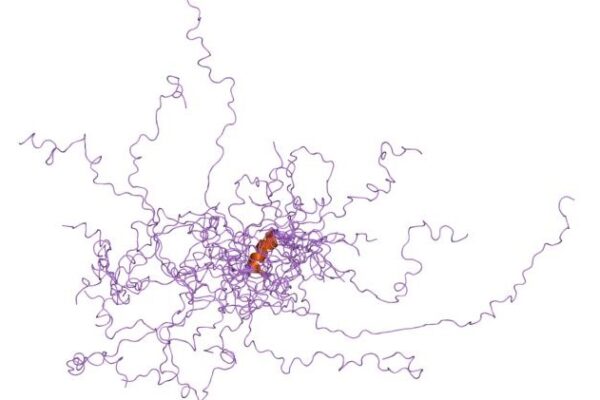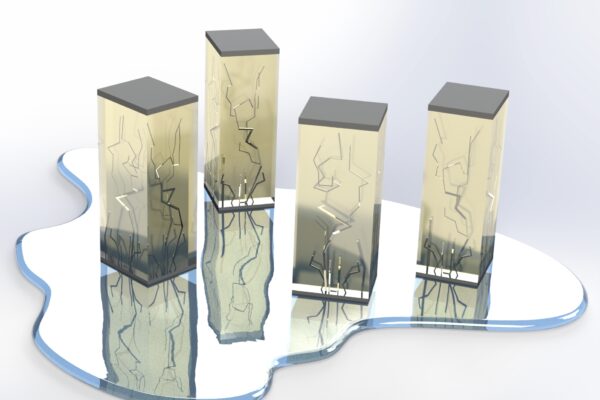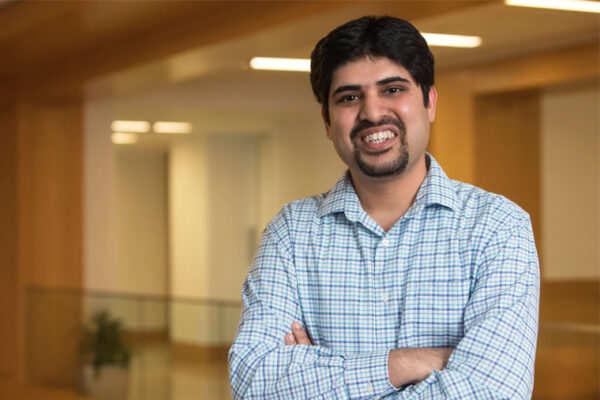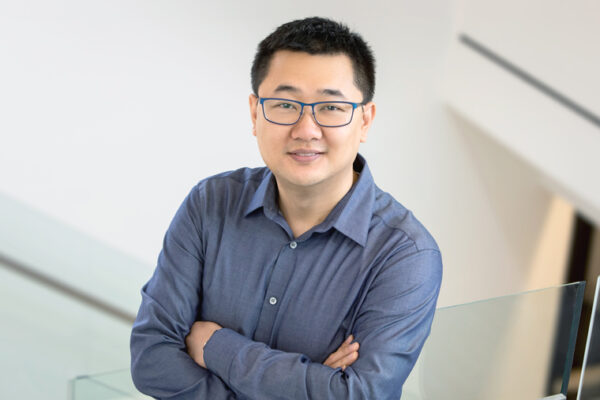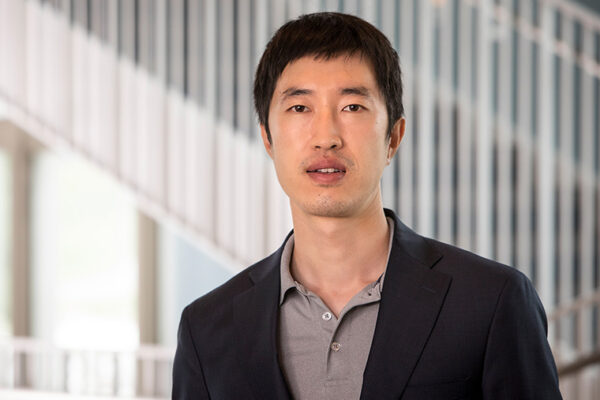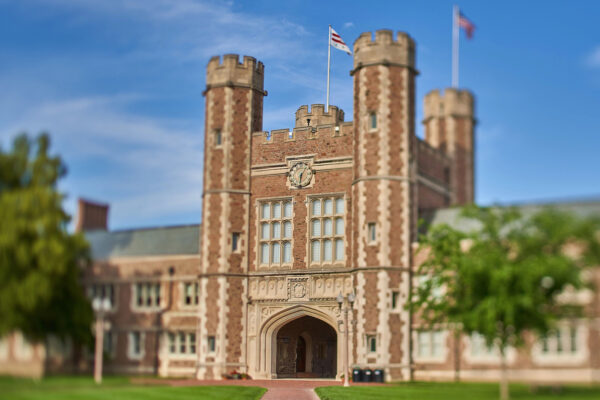Commencement student speakers reflect on their academic journeys
Nicholas Armstrong and Samm Kaiser will speak at the university’s 162nd Commencement Ceremony at 9 a.m. Monday, May 15.
Li named Wilson Professor of Engineering
Jr-Shin Li, a professor of systems science and mathematics at the McKelvey School of Engineering, has been named the Newton R. and Sarah Louisa Glasgow Wilson Professor of Engineering.
Pappu to explore ways in which charge contributes to diverse states of proteins
Rohit Pappu at the McKelvey School of Engineering received a National Science Foundation grant to study the impact of charge regulation on intrinsically disordered proteins.
Study shows similarity between solid state and liquid state electrolytes used in batteries
Research led by Peng Bai at the McKelvey School of Engineering is the first to show that a solid-state electrolyte has a high level of similarity to liquid electrolytes, which is good news for designing safer and more efficient solid-state batteries based on reliable mechanistic knowledge.
Jha wins NSF CAREER award for imaging research
Abhinav Jha, an assistant professor at the McKelvey School of Engineering and the School of Medicine, received a National Science Foundation CAREER award to develop approaches for list-mode imaging that improve information collection.
Class Acts: Carolyn Duncan
After graduating in May with a degree in biomedical engineering from the McKelvey School of Engineering, Carolyn Duncan will work as a researcher at Auragent Bioscience, a startup with many WashU connections.
Zhang wins CAREER award to address cyber-physical security threats
Ning Zhang, an assistant professor of computer science and engineering at the McKelvey School of Engineering, received a National Science Foundation CAREER award to address threats to the availability of cyber-physical systems, like the systems behind self-driving cars or energy production pipelines.
Bae pushes past the limits of traditional semiconductors
Sang-Hoon Bae, an assistant professor of mechanical engineering and materials science at the McKelvey School of Engineering, won an award from Samsung’s Global Research Outreach Program to explore next-generation semiconductor materials and fabrication.
Securing edge-enabled cyber-physical systems
Ning Zhang, an assistant professor of computer science and engineering at the McKelvey School of Engineering, won a three-year $180,000 award from Intel to support work to assure availability of the Intel Trusted Edge Platform.
Engagement on anti-racism, diversity and inclusion
Washington University is partnering with the National Academies of Sciences, Engineering, and Medicine in its efforts to stimulate cultural change and support inclusive excellence in science and technology fields and is hosting a day of activities May 3 on the Danforth Campus.
View More Stories
